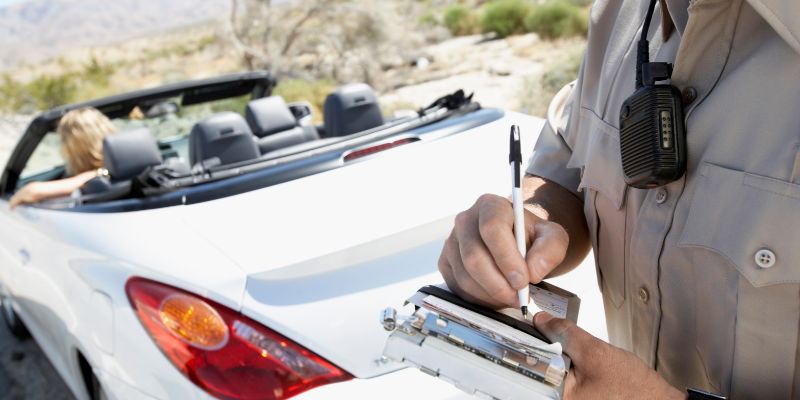Schedule A Consultation Today!
West Palm Beach DUI Lawyer
West Palm Beach, FL DUI Attorney
When you or a loved one is cited with a driving while intoxicated or impaired (DWI) offense, figuring out what to do after the arrest can feel overwhelming. If you’re facing a DUI charge in West Palm Beach, FL, you need a skilled DUI attorney on your side to help answer your questions. The consequences of a DUI conviction can be severe, including license suspension, hefty fines, and even jail time.
The results can be financially devastating. At our law firm, we understand the complexities of DUI cases and are dedicated to providing you with experienced legal representation. Our West Palm Beach DUI attorneys will craft a strong defense strategy, protect your rights, and guide you through the legal process. Trust our experience and commitment to fight for the greatest possible outcome in your DUI case.
Not all cases are the same. Our attorneys can review all circumstances of your arrest to determine the right course of action. Our team can help you avoid conviction or find ways to reduce the burdensome consequences you may face. With years of experience in what to look for in drunk driving charges, we focus on DUI defense that can help make a difficult situation more manageable.
Police Determination of Impairment
In West Palm Beach, you can be convicted of a DUI by the State Attorney if you operate, or are under the physical control of, a vehicle while under the influence. In Florida, a vehicle is not limited to an automobile but can also include a bicycle, boat, golf cart, or horse.
Suppose a law enforcement officer pulls over your vehicle for a traffic violation, or any other reason, and suspects that you may be under the influence of alcohol or drugs. In that case, you may be asked to complete field sobriety exercises (FSEs) to discern if you are driving impaired, which may include:
- Horizontal Gaze Nystagmus (HGN): An officer will look at your eyes to see if they display involuntary eye movements, such as shakes or jerks.
- Rhomberg Alphabet: A police officer will ask you to recite the alphabet without singing.
- One-Leg Stand: An officer will ask you to balance on one leg and count to 30 without losing balance.
- Walk and Turn: A law enforcement officer will ask you to step heel-to-toe for a requested amount of steps. They will then ask you to turn around and walk back.
Police officers use these exercises as part of the investigation process, but they are not mandatory under Florida law. FSFs can be flawed determiners of intoxication. Not only are they subjective to an officer’s opinions, but other factors can cause a person to “fail” any number of these tasks, such as physical injuries, disability, or environmental issues where the tests took place.
However, if the officer suspects that you are impaired and asks that you submit to a breathalyzer or a urine or blood alcohol test, anyone with a Florida driver’s license must comply with these exams. Failure to take them will result in the suspension of your license for one year.
After an Arrest
The most important step after a driving under the influence accusation is to have all the details of your arrest thoroughly examined by a legal professional. It would be wise not to plead guilty to charges without being fully informed of your legal rights or options. The sooner a highly qualified lawyer begins examining the details of your case, the better the opportunity to build an informed defense.
A DUI attorney can help you determine if the prosecution has enough sufficient evidence to prove their case against you. If law enforcement made errors during your arrest, or failed to gather enough evidence against you, the DUI charges could be dismissed or dropped to a lesser offense, in some circumstances.
The Court Process in Florida
Every Florida DUI case has two components: the civil case filed against you by the DMV and the criminal indictments and penalties for the offense. For a misdemeanor case, the timeline is typically three to six months. Several processes and procedures are involved in a typical Florida DUI criminal case.
- First Appearance: Within 24 hours of an arrest for DUI, a judge will notify you of your charges at your first hearing and determine whether there is probable cause for your arrest after reviewing police reports. Here, you are advised of your right to hire legal counsel.
- Arraignment: The court process begins at arraignment, wherein you enter your plea. Your lawyer can file paperwork to waive your appearance at this hearing, enter a plea of not guilty on your behalf, and request a trial by jury.
- Pretrial Conference: Several weeks after the arraignment, the pretrial conference updates the judge on the progression of your case. Your lawyer may offer negotiations to resolve the matter at this conference in place of a trial. The judge will schedule your trial if an agreement cannot be reached.
- Filing Motions: The defense typically requests evidentiary hearings at your trial date. The judge will determine the key details and admissibility of evidence in your case. Your attorney may file a motion regarding discovery at your hearing.
- Evidentiary Hearings: An arresting officer and expert witnesses may testify at an evidentiary hearing, and your lawyer will be allowed to question and cross-examine testimony or provide an argument and evidence on your behalf.
- Trial: About two percent of cases go to a jury trial. However, all Florida DUI defendants have a constitutional right to a trial by a jury of their peers. Seven jurors will listen to the evidence against you at a jury trial. You will be sentenced immediately following the verdict if you are found guilty.
You can appeal to a higher court if you lose your DUI trial. An appeal examines the trial’s details for judicial errors or whether you were given the right to an impartial and fair trial.
DUI Penalties Under Florida Statutes Section 316.193
Under Florida DUI law, driving under the influence (DUI) may be proven by impairment of normal faculties or an unlawful blood alcohol or breath alcohol level of .08 or above. While most DUI arrests are alcohol-related, be aware that you can also be arrested if you test positive for marijuana, cocaine, or other illegal drugs, as well as certain cough medications and prescription medications if used in excess.
Florida treats DUI as a serious offense, with severe jail time applicable in some circumstances, as well as hefty fines, ignition interlock, and license reinstatement requirements.
Under Section 316.193(2)(a)-(b), the fine schedule is as follows:
- First Conviction: You will be fined between $500-$1,000. With a blood/breath alcohol level (BAL) of 0.15 or higher or a minor in the vehicle, however, it will be between $1,000-$2,000.
- Second Conviction: The fine will be between $1,000-$2,000. With a BAL of 0.15 or higher or a minor in the vehicle, it will be between $2,000-$4,000.
- Third Conviction: If this occurs more than 10 years from the second, you will be fined between $2,000-$5,000. With a BAL of 0.15 or higher or a minor in the vehicle, it will be no less than $4,000.
- Fourth or Subsequent Conviction: Expect a fine of no less than $2,000.
Regarding community service penalties, under Florida Statutes Section 316.193 (6)(a), the sentence following a first-time conviction will be a mandatory 50 hours of community service or an additional fine of $10 for each hour of community service required.
The probation penalty for a first conviction will be a total period of probation and incarceration not exceeding 1 year. Imprisonment, on the other hand, has a few more terms depending on the circumstances of the arrest.
- First Conviction: Not more than 6 months of jail time. With a BAL of 0.15 or higher or a minor in the vehicle, not more than 9 months.
- Second Conviction: Not more than 9 months. With a BAL of 0.15 or higher or a minor in the vehicle, not more than 12 months. If the second conviction is within 5 years, there is a mandatory imprisonment of at least 10 days in jail. At least 48 hours of confinement must be consecutive.
- Third Conviction: If you have a third conviction within 10 years, you will have a mandatory imprisonment of at least 30 days. At least 48 hours of confinement must be consecutive. If the third conviction is more than 10 years from the second, imprisonment will not be for more than 12 months.
- Fourth or Subsequent Conviction: Not more than 5 years or as provided in s.775.084, Florida Statutes, as a habitual/violent offender.
Note that at the court’s discretion, sentencing terms may be served in a residential alcohol or drug abuse treatment program, credited toward the term of imprisonment.

Administrative Driver’s License Considerations – Immediate Action Required
When you are arrested for a DUI in Florida, the officer will confiscate your driver’s license. You will be given a traffic DUI citation and notice by the officer. This paper will serve as your license to drive for a period of only 10 days.
Within that 10-day window, you must proactively request that the Department of Highway Safety and Motor Vehicles set an Administrative Review Hearing on your case or else your license will automatically be suspended for a minimum of 30 days or longer, depending on the nature of your DUI charge. Because of this rather short time period for action, you should contact an attorney immediately after your DUI arrest.
For a free initial consultation with a West Palm Beach DUI attorney, contact Attorney Nellie L. King by calling (561) 833-1084 or filling out an online form here.
Impoundment or Immobilization of Vehicle – Florida Statutes Section 316.193 (6)
In Florida, unless the family of the defendant has no other transportation, the court must enter an order impounding your vehicle (under Florida Statutes Section 316.193 (6)). The length of immobilization varies depending on the offense:
- First conviction: 10 days
- A second conviction within 5 years: 30 days
- A third conviction within 10 years: 90 days
Be aware that impoundment or immobilization must not occur concurrently with incarceration. The court may dismiss the order of impoundment of any vehicles that are owned by the defendant if they are operated solely by the employees of the defendant or any business owned by the defendant.
Someone charged with DUI will not be released from jail unless the person is no longer under the influence, and:
- The person’s normal faculties are no longer impaired
- The person’s blood/breath alcohol level is lower than 0.05
- Eight hours have elapsed from the time the person was arrested
DUI Misdemeanor Convictions and Felony Convictions in West Palm Beach, FL
Any person who causes property damage or injury to another while driving under the influence is guilty of a first-degree misdemeanor (not more than $1,000 fine or 1-year imprisonment). Any person convicted of a third DUI within 10 years or a fourth or subsequent DUI, on the other hand, commits a third-degree felony (not more than a $5,000 fine and/or 5 years imprisonment). Additionally, any person who causes serious bodily injury while driving under the influence is also guilty of a third-degree felony (not more than a $5,000 fine and/or 5 years imprisonment).
Manslaughter and Vehicular Homicide
DUI manslaughter is a second-degree felony (not more than a $10,000 fine and/or 15 years imprisonment). Vehicular homicide is also a second-degree felony (not more than a $10,000 fine and/or 15 years’ imprisonment).
Note that a driver convicted of DUI manslaughter who knew/should have known an accident occurred and failed to give information or render aid (left the scene) is guilty of a first-degree felony (not more than a $10,000 fine and/or 30 years imprisonment). Similarly, a driver convicted of vehicular homicide who left the scene of an accident is also guilty of a first-degree felony (no more than $10,000 fine and/or 30 years’ imprisonment).
Driver License Revocation Periods for DUIs in West Palm Beach, FL
The license revocation periods after a DUI arrest are as follows:
- First Conviction: Minimum 180 days, maximum 1 year
- Second Conviction Within 5 Years: Minimum 5 years; you may be eligible for hardship reinstatement after 1 year
- Third Conviction Within 10 Years of the Second Conviction: Minimum 10 years; may be eligible for a hardship reinstatement after 2 years
- Fourth Conviction (regardless of when prior convictions occurred) and Murder with Motor Vehicle: Mandatory permanent revocation; no hardship reinstatement
- DUI Manslaughter: Mandatory permanent revocation; if you have no prior DUI convictions, you may be eligible for hardship reinstatement after 5 years
- Manslaughter, DUI Serious Bodily Injury, or Vehicular Homicide Convictions: Minimum 3 years
Commercial Motor Vehicles (CMV) and Alcohol-Related Convictions/Disqualifications
Persons convicted of driving a commercial motor vehicle (CMV) with a blood alcohol level of 0.04 or above shall be disqualified from operating a commercial motor vehicle for 1 year. Be aware that this is in addition to any provisions of other DUI convictions. A second or subsequent conviction of these offenses arising out of separate incidents will result in a permanent disqualification from operating a commercial motor vehicle.
Note that there are no provisions for persons disqualified from operating a CMV to obtain a hardship license to operate a commercial motor vehicle.
Reinstatement of Licenses for Business or Employment Purposes Only
Following your first conviction, to reinstate a license for business or employment purposes you must complete DUI school and apply for a hearing for possible hardship reinstatement. There is a mandatory ignition interlock device for up to six months for those with a BAL of 0.15 or higher.
Following your second and subsequent conviction, however, no hardship license will be granted, except as provided below. You will also have a mandatory ignition interlock device for 1 year, or for 2 years if your BAL was greater than 0.20.
After a second conviction within 5 Years (5-rear revocation), you may apply for a hardship reinstatement hearing after 1 year. If you have received a third conviction within 10 years (10-year revocation), you may apply for a hardship reinstatement hearing after 2 years. Under both a 5-year and 10-year revocation, you must complete DUI school and remain in the DUI supervision program for the remainder of the revocation period.
Failure to report for counseling or treatment will result in the cancellation of your hardship license. You also may not have consumed any alcoholic beverage or controlled substance or have driven a motor vehicle for 12 months prior to reinstatement.
Following a charge for DUI Manslaughter with no prior DUI conviction (permanent revocation), you may be eligible for hardship reinstatement after 5 years have expired from the date of revocation or expired from the date of term of incarceration provided you have met the following requirements:
- Have not been arrested for a drug-related offense for at least 5 years prior to the hearing;
- Have not driven a motor vehicle without a license for at least 5 years prior to the hearing;
- Have been alcohol and drug-free for at least 5 years prior to the hearing; and
- Have completed DUI school and have been supervised under the DUI program for the remainder of the revocation period.
Note that the ignition interlock device will be required for 2 years. Those convicted of manslaughter, DUI resulting in serious bodily injury, or vehicular homicide may immediately apply for a hardship reinstatement hearing. You must also complete DUI school or an advanced driver improvement course.
DUI School Requirements
DUI school is an important component of any DUI sentence. Following a first conviction, you must complete DUI school before hardship reinstatement. Those who wait out the revocation period before reinstatement need only show proof of enrollment or completion to become re-licensed. Be aware that if you enrolled and your license has been reinstated after the revocation period expires, failure to complete the DUI school within 90 days after reinstatement will result in license cancellation; you cannot then be re-licensed until DUI school is completed.
Following a second conviction in 5 years or a third conviction in 10 years, you must complete DUI school following your conviction. Similarly, if you have been convicted of DUI Manslaughter with no prior DUI convictions, you must complete DUI school before hardship reinstatement.
If you wait until the revocation period expires, you must enroll in DUI school and pass the driver’s license examinations to be re-licensed. Failure to complete the school within 90 days after such reinstatement will result in cancellation of the license until DUI school is completed.
Additionally, if the court has reasonable cause to believe that the use of alcohol, chemical, or controlled substances contributed to a violation of reckless driving, the person convicted of reckless driving must complete DUI school if ordered by the court to do so.
Chemical or Physical Test Provisions (Implied Consent Law)
Refusal to submit to a breath, urine, or blood test is admissible as evidence in DUI criminal proceedings. Second or subsequent refusal is a first-degree misdemeanor.
Following your first refusal, your license will be suspended for 1 year. Second or subsequent refusals will result in suspensions for 18 months.
In the case of commercial driver’s licenses, a first refusal in a commercial motor vehicle will result in a license disqualification of 1 year. Second or subsequent refusals in a CMV will result in permanent disqualification, and no hardship reinstatement will be permitted.
Be aware that, if necessary, blood may be withdrawn in DUI cases involving serious bodily injury or death by authorized medical personnel with the use of reasonable force by the arresting officer, even if you refuse.
Furthermore, any person who is incapable of refusal by reason of unconsciousness or other mental or physical condition shall be deemed not to have withdrawn their consent to such a test. A blood test may be administered whether or not such a person is told that their failure to submit will result in suspension of their driving privileges.
Driving While License Suspended or Revoked
Any person whose driver’s license is suspended or revoked for DUI and who causes death or serious bodily injury to another person by operating a motor vehicle in a careless or negligent manner is guilty of a third-degree felony, punishable by both imprisonment of not more than 5 years, a fine not to exceed $5,000, or both
Administrative Suspension of Persons Under the Age of 21
Law enforcement officers who have probable cause to believe that a vehicle is in the physical control of a person under the age of 21 who has any alcohol level may lawfully detain this person and may request them to submit to a test to determine the alcohol level. This violation is neither a traffic infraction nor a criminal offense nor does being detained under this statute constitute an arrest.
Persons under the age of 21 with an alcohol level of 0.02 or above will receive a first suspension of 6 months, and second or subsequent suspensions will constitute 1 year. However, the first suspension for refusal to submit to a breath test will be 1 year, and the second or subsequent suspensions for refusal will be 18 months.
The suspension will be effective immediately. If the breath or blood alcohol level is 0.05 or higher, the suspension shall remain in effect until completion of a substance abuse evaluation and course. The officer will issue the driver a temporary permit effective 12 hours after issuance which is valid for 10 days, provided the driver is otherwise eligible.
FAQs About West Palm Beach DUI Lawyers
How Do I Choose a DUI Attorney?
It would be ideal to look for an attorney focusing on DUI defense cases. They should have a high success record and be licensed where the DUI incident allegedly occurred. The attorney should have a degree from a law school accredited by the American Bar Association (ABA) with excellent references and a clean, ethical record on the state’s ABA website.
How Much Does It Cost to Get a DUI Lawyer in Florida?
Average attorney fees can run from $1,500 to $75,000 for misdemeanor offenses in Florida. Felony charges, such as DUI cases that result in severe injury or death, can cost up to $10,000. Seeking legal help when you’re accused of drunk driving can help reduce piling costs resulting from a conviction.
Should I Get a Lawyer for a DUI in Florida?
Whether you want to contest a citation or reduce your charges, an experienced DUI lawyer can be greatly beneficial. A skilled DUI attorney can examine your case, help determine the available options, and guide you through the legal system. If you have prior convictions, hiring a DUI lawyer is critical to securing a favorable outcome.
How Do You Get a DUI Dropped in Florida?
A DUI conviction will stay on your record for 75 years in Florida. About 30-40% of these cases are dismissed or plead down to a lesser charge, like reckless driving. Legal counsel can carefully look at your case and help determine how to build a strong defense or whether there is a chance for dismissal.
Contact a West Palm Beach DUI Attorney Today
If you have been convicted of any type of DUI charge, you will need to take immediate action in your defense. Speaking to a DUI defense lawyer as soon as possible after your arrest is critical to navigate the nuances of your charge and potential penalties. Highly respected and award-winning DUI attorney Nellie L. King will work personally with you to build a strong defense to protect your rights – and your reputation.
Facing charges can feel overwhelming, but you don’t have to face the legal system alone. You deserve to have your voice heard. Learn more about why clients say that the Law Offices of Nellie L. King is the ideal choice to advocate for your DUI case in the courtroom.






